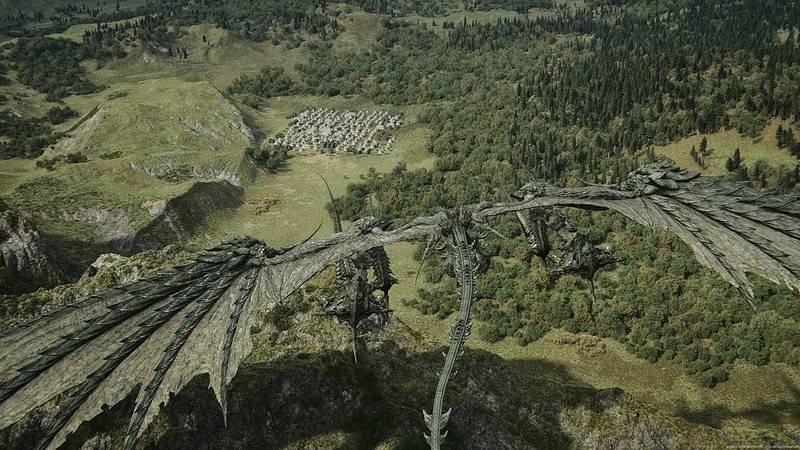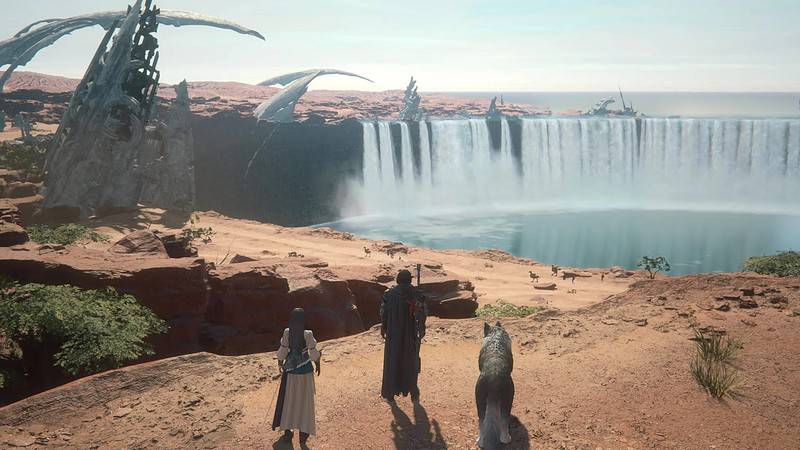On June 22, the gaming world eagerly watched as Square Enix finally pulled back the curtains on its latest installment in the iconic Final Fantasy series, Final Fantasy 16.
The highly anticipated PlayStation 5 had a massive amount of marketing hype behind it and was beloved by critics and its fans, especially following its extensive demo. But, at the same time, FF16 ignited impassioned debates over the identity of Final Fantasy, particularly how it has evolved.
Now, this discussion has spilled over to Metacritic, where some are letting their two cents about FF16 known, much to the detriment of the game's User Score.

Breaking the mold, the developers diverged from the traditional turn-based mechanics, long regarded as a staple of JRPGs, opting for a more action-oriented combat system. This shift sparked controversy among ardent fans, some of whom had a bit of trouble adapting to the new gameplay experience. Nevertheless, critics recognized the audacity of this decision, with many lauding the daring new direction Square Enix has taken. Final Fantasy XVI, embracing an innovative yet contentious approach, presently holds a respectable 88 Metascore on Metacritic, underscoring the critical acclaim the game has managed to secure.
Yet, the consumer consensus tells a different tale. Presently, the game has a User Score of 7.4/10 on Metacritic, an apparent chasm between the opinions of critics and gamers. Some fans feel betrayed by this abrupt shift, asserting that the new installment plays more like an action game akin to Devil May Cry rather than a traditional Final Fantasy entry.
Although this shouldn't come as a huge surprise as its combat designer, who is a huge fan of Final Fantasy V, had a hand in designing the combat systems of Monster Hunter and Devil May Cry, among others.
Unfortunately, the divergence in combat style isn't the only bone of contention. The exclusive nature of FF16 on the PS5 is a pain point as well. Thus, a handful of aggrieved fans resorted to "Review Bombing" FF16, an act of inundating a rating site with zero scores in a bid to express dissatisfaction and distort the game's rating. Such drastic actions are regrettable, not least because they tend to obscure nuanced and legitimate criticism.
Debates also raged over what precisely constitutes a JRPG or RPG. The definitional boundaries have blurred in recent years as RPG elements have seeped into other genres.
Some argue that the 'RPG' label is dependent on factors like leveling mechanics, story-driven gameplay, or character development. In a world where Grand Theft Auto and Call of Duty incorporate RPG elements, the designation has certainly become ambiguous. And yet, there are fans who argue that FF16 remains an RPG at its core. Despite the evident shift in combat mechanics, they highlight elements such as character-centric storytelling, experience and level progression, stats, and crafting as quintessential RPG features that persist in the latest title.
Additionally, the aesthetic departure from the modern or futuristic settings typical in recent Final Fantasy games is being questioned as well. But, if you think about it, FF16, set in a medieval world that resonates with George R.R. Martin's Game of Thrones, represents a return to the series' roots. This bold move demonstrates Square Enix's audacity to challenge preconceived notions of what a Final Fantasy game could be while also paying homage to the original titles.
Despite the criticisms, it's important to remember that Final Fantasy, as a series, has frequently reinvented itself. Case in point, Final Fantasy VII shocked players with its revolutionary 3D graphics and refreshingly modern narrative, just as Final Fantasy XVI's dark, mature story, fast-paced combat, and next-gen graphics are causing ripples now.
This isn't the first nor last time Final Fantasy will walk the fine line between beloved and panned, especially with the sequel, Final Fantasy 7 Rebirth, being launched in two discs for some reason.
Ultimately, the controversy surrounding FF16 highlights the shifting landscape of RPGs and the ever-evolving expectations of its fans. If nothing else, we should applaud Square Enix for redefining and innovating their flagship franchise.

Only time will tell if this controversial departure will be seen as a bold reinvention or a misguided deviation.
For now, Final Fantasy XVI remains a fascinating focal point in the broader dialogue about the future of RPGs.
